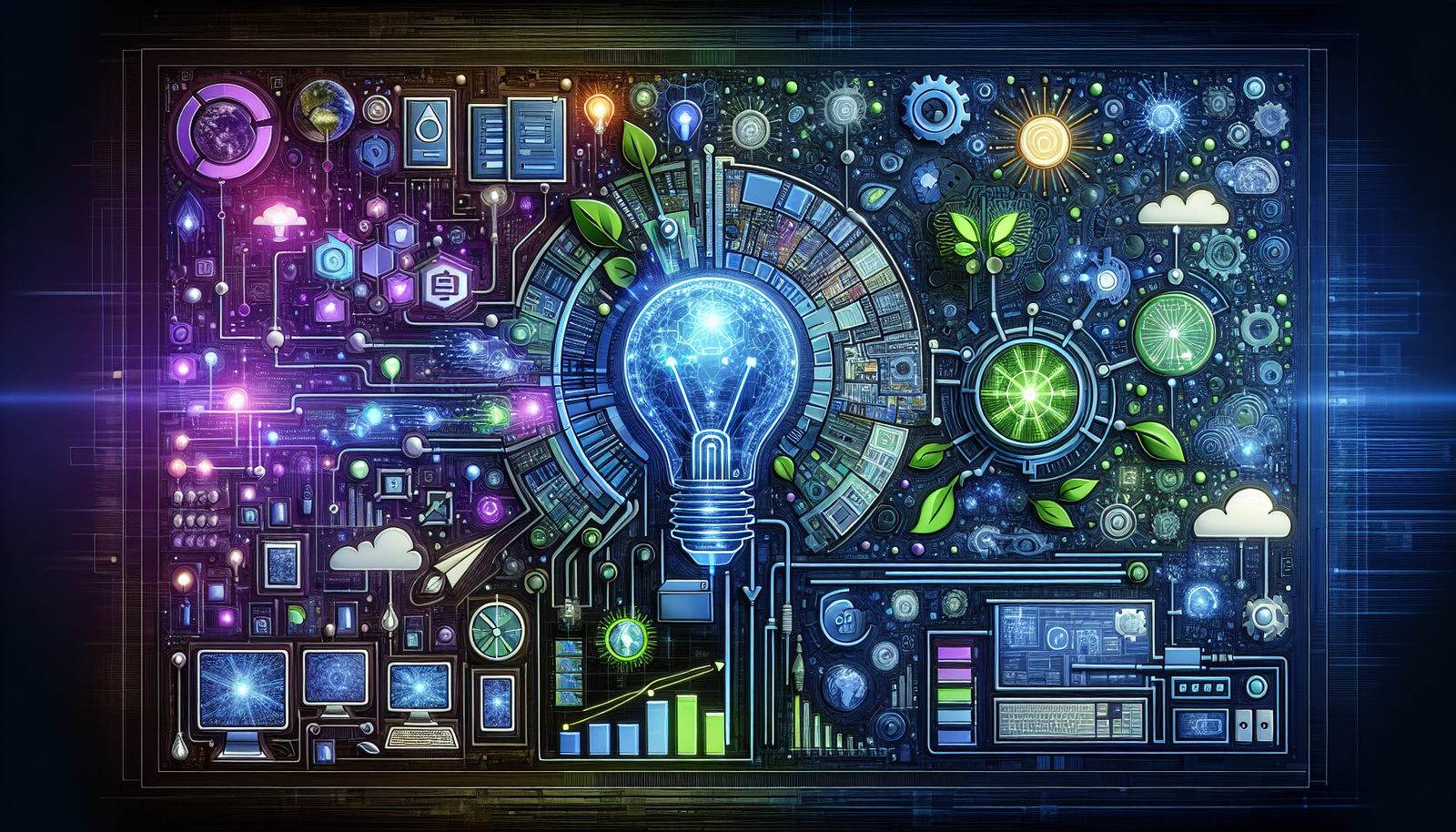The emergence of a new computational framework is radically transforming the world of machine learning. This revolutionary approach effectively optimizes data operations while harmonizing energy needs. The convergence of artificial intelligence and energy optimization allows companies to reduce their carbon footprint. Industry players must consider these innovations. *A synergy between advanced technologies and energy consumption is becoming essential*. The integration of quantum methods in machine learning offers fascinating prospects. *Revolutionizing data models while saving energy represents a major challenge*. This paradigm will provide wise solutions to current complexities.
Recent Advances in Machine Learning
A new computational framework has recently emerged, promising to revolutionize the field of machine learning. By integrating the principles of quantum computing, it becomes possible to process complex data models in unprecedented ways. The utilization of quantum algorithms can significantly accelerate learning processes, allowing for the resolution of problems that until now seemed almost insolvable with traditional methods.
Energy Optimization in Data Systems
This framework also offers solutions to optimize energy efficiency in data operations. While the entropy of traditional computing systems remains concerning, the new model allows for a reduction in electricity consumption while increasing the speed of information processing. The challenge lies in maintaining this energy efficiency while ensuring optimal performance.
Practical Applications of Artificial Intelligence
The integration of artificial intelligence in energy management proves particularly relevant. For example, AI systems predict energy needs, adjusting resources accordingly. Such initiatives not only help control energy consumption but also improve the management of resource storage. The energy sector thus appears as a wonderful application field for AI, rethinking how energy is generated and distributed.
The Role of Education in these Innovations
Students in bachelor’s and master’s programs in fields like computer science or applied mathematics must seize this trend. Practical learning of machine learning techniques is today an essential niche for those wishing to professionalize in the technological field. Engineering schools, in particular, are integrating these new skills into their programs.
Future Perspectives
Experts anticipate that ambitious projects like Kyutai, which develops innovative solutions in artificial intelligence, will play a crucial role in the future. Meanwhile, the excitement surrounding claims that superintelligence could be achieved in just a few thousand days draws attention to the acceleration of innovations. This type of technological transformation necessitates ethical reflection to ensure that AI benefits everyone.
Concrete Examples in Industry
Construction companies, such as those in the Vinci group, are already benefiting from generative AI. The use of this technology is transforming the industry, redefining design and construction methods. The economic and environmental impacts of such initiatives are considerable and pave the way for a promising future that is sustainable and efficient.
Conclusion on Paradigm Shifts
Advances in machine learning fueled by quantum computing mark the beginning of a new paradigm. The emergence of energy-optimized systems could revolutionize not only the way data is managed but also lay the groundwork for more environmentally friendly energy consumption. Educational institutions must anticipate and integrate these developments into their teaching to train tomorrow’s leaders ready to tackle these fascinating challenges.
Frequently Asked Questions
What is a new computational framework in the context of machine learning?
A new computational framework refers to an innovative approach that enhances machine learning processes by utilizing optimized data structures and advanced algorithms to effectively process large volumes of data.
How does this framework boost machine learning?
This framework enhances machine learning by making algorithms faster and more accurate, allowing for real-time data processing and better utilization of available resources.
How does this new framework optimize energy efficiency in traditional data operations?
It optimizes energy efficiency by reducing the energy consumption required to execute algorithms through a more efficient computing architecture, allowing more tasks to be accomplished with fewer resources.
What are the benefits of energy optimization in machine learning?
The benefits include reduced operational costs, decreased carbon footprint, and improved performance for companies utilizing machine learning in their operations.
Is this new framework compatible with existing machine learning systems?
Yes, this framework is designed to be integrated into existing systems, allowing organizations to modernize their infrastructures without requiring a complete overhaul of their machine learning systems.
How can the impact of this framework on energy performance be measured?
The impact can be measured through performance indicators such as energy consumption per processing task, computation time per algorithm, and overall efficiency at the data processing level.
Is it necessary to have advanced technical skills to adopt this framework?
While some expertise in machine learning and computing is beneficial, intuitive tools and accessible training enable less technical users to implement this framework effectively.
Can this computational framework be applied to various sectors?
Yes, it can be applied to various sectors such as energy, finance, health, and more, as it is flexible and suited to different types of data and needs.






